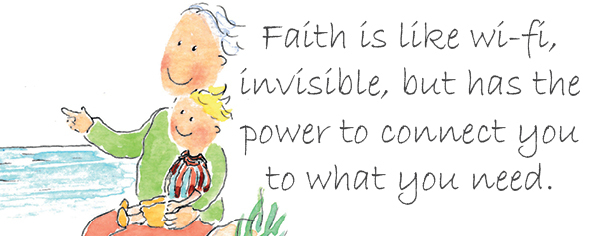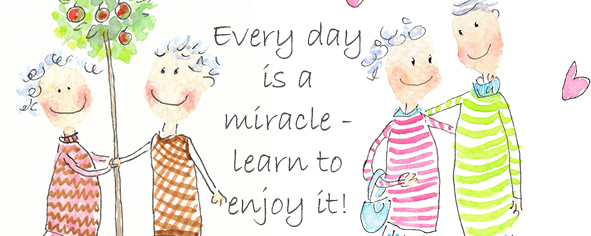Believer +3.82 years
Believer +3.82 years
Who believes in you, what do you believe in, and what did you believe in as a child? Whether someone believes that one exists or not does not change one’s existence - any more than one’s belief in God affects God’s existence.
Research shows that belief in God gives 3.82 years longer life - being an atheist does not provide a longer life in the afterlife. The belief that everything ends after the mortal life brings human life to a faster end. It’s like the saying believe you can, and you will - think you can’t, and you’ll be right.
Before I became an entrepreneur, I studied theology at Lund University, and during my travels in 65 countries, I got to meet many people of different faiths. It gave me unforgettable meetings with, for example, monks in India and Japan. In my non-profit film project, I got to interview, among others, the nun Sister Celiné, Cardinal Anders Arborelius, and my old professor of religious psychology Anton Geels and ask about faith and prayer.
Throughout my life, I have kept my childhood faith and the habit of reading the evening prayer my mother read with me every night. For me, it is a grace to believe and rest in thinking that I am loved and forgiven and in the hope of meeting loved ones that I have lost along the way and sharing an eternal life.
I prayed for my mother, Gunnel, and held her hand the moment she left us. I prayed with my grandmother, Nanny, who had the same simple childlike faith. I bow down in prayer of gratitude and to ask for help. Resting in prayer with others is a moment of total life presence and security. It doesn’t hurt the eye to see life on the bright side.
Positive effects: In a study, researchers Laura Wallace and Baldwin Way analyzed 505 obituaries published in Des Moines. Religious believers lived 9.45 years longer than non-believers. Adjusted for gender and marital status, believers lived 6.48 years longer than non-believers.
A second study analyzed 1,096 obituaries in 42 major US cities. Religious believers lived 5.64 years longer and 3.82 years after adjusting for gender and marital status.
https://journals.sagepub.com/doi/full/10.1177/1948...
According to one study, elderly patients hospitalized for physical problems but also suffering from depression recovered better if religion was a part of their lives.
Study from 1998, published in the American Journal of Psychiatry
Researchers found that belief in a caring God improves response to psychiatric treatment in depressed patients. According to researcher Patricia Murphy of Rush University, the improved response was “specifically tied to the belief that a higher being cared”.
Journal of Clinical Psychology 2010One way to predict suicide is hopelessness. If you lose hope for a brighter future, you are more inclined to take your own life. One study found that belief in God led to greater faith in treatment and hope that one would eventually get better. Belief in God facilitates the belief that everything can be improved, even at a low level.
https://www.sciencedirect.com/science/article/abs/...
Another significant predictor of suicide is impulsivity. One study showed that over 4 out of 10 suicide attempts were made within
10 minutes of someone deciding to take their life.
https://onlinelibrary.wiley.com/doi/full/10.1002/c...
Religion prevents suicide by promoting self-control. In the case of impulses, faith is a filter or buffer. Is the behavior in line with
higher-order values? For religious patients who experience the need to harm themselves, beliefs may be protective factors. Faith
seems to bring hope, optimism, and meaning-making.
https://pubmed.ncbi.nlm.nih.gov/19210054/
Religious people are often happier than those who have no faith. According to the research, the increase in happiness, social joy, and the community comes from regular church services. Socializing with others builds social networks and bonds for a happier life.
December 2010 in the journal American Sociological Review.

Faith, healing, and medicine complement each other. Of course, you should follow the advice of doctors, ask several specialists for advice on essential issues, and, if necessary, get help from medicine, vaccines, surgery, and hospitals. A study in the Journal of the National Cancer Institute found that those who chose only alternative therapy for their cancer were 2.5 times more likely to die than those who took conventional cancer treatment. Every exit is the entrance to something else.





